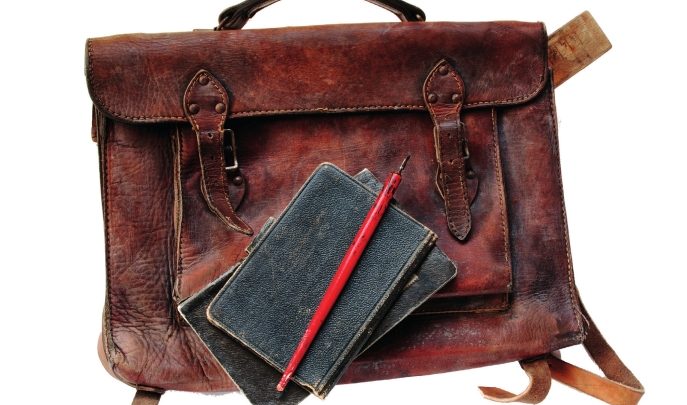School Of Hard Knocks? – SEN Provision Then And Now

How does modern-day SEN provision in schools compare to decades past?

- by Teachwire

Four people share with what they remember of their education, including memories of segregation, low expectations and bullying – but also lasting friendships, supportive teachers and learning opportunities that made them who they are today…
Penny Pepper
The school was grey bricks and lots of glass. A school for the physically and mentally handicapped.
As a child diagnosed with a rare form of arthritis, it was deemed appropriate for me to go there. Such schools were seen as progressive in the 1960s, even if the experience from the pupils’ perspective meant they left a lot to be desired.
My father had taught me to read and write before the age of five, and I enjoyed learning, but as the years passed it became clear that there was to be no long-term focus on our academic achievement. I remember one kid in our school, Dave, was held up as a shining beacon of intellectualism – he was doing an O level. I can’t remember what this sacred O Level was, but it set him apart and he was spoken about in hushed tones.
It wasn’t that the teachers were incompetent, but there was a culture of being encouraged to simply get by, to not have ambition. I remember the horror when I learnt from some older girls – clever girls – about the work placement they were on, which involved packing tampons into boxes. This was seen as ‘being useful’.
There was no one-to-one care support, and as my medical condition deteriorated, this took a great toll. My hips seized up by the time I was 12. There were always queues for help to use the loo, and that grotesque interpretation of ‘independence’ – an insistence that you do everything yourself – caused endless tears before bedtime.
Special school – segregated school – had scant pluses. There was the bonding with your peers, who understood exactly what you were going through. There were friendships that would last, including one with a teacher who I’m still in contact with today.
But overall, it was an experience I hope is not being inflicted on disabled children in the 21st century.
To find out more about Penny’s writing and upcoming performances, visit pennypepper.co.uk
Amy Trigg
When I was 11 I went on a tour of the secondary school I was hoping to attend that September. It was a two-minute walk away from my house and my brother was already a student there.
I discovered it was inaccessible in more ways than one, which meant I had to go to a school on the other side of town. This other school was all on one level and accessible throughout. I would be the only wheelchair user there, and hardly any of my friends would be joining me, but that was okay, because it was a performing arts school and college.
I looked forward to being able to take drama classes and attend after school clubs, and received help in many ways. I got a taxi to and from school, one-to-one help when I needed it and a counsellor. It wasn’t all rosy, though. I was bullied, struggled to make friends and my confidence plummeted. I loved learning, but didn’t enjoy eating my lunch in the disabled toilet to avoid the bullies. Things started to change in year 10 once I began taking drama more seriously and made friends at after school clubs. I stayed on at my secondary school for sixth form and went on to a top drama school in London.
The secondary I attended is now an academy and has doubled in size. I’m not sure how I would have coped in such a big school, because it was the personal touches that made my experience of school bearable. Teachers helping me catch up on work I’d missed because of a hospital visit; my drama teacher making the stage accessible and my ‘special helpers’, who gave me extra time when they knew I was having a bad day.
Lee Ridley
Lee Ridley is a former journalist turned full-time stand-up comedian, performing under the name ‘Lost Voice Guy’; born with cerebral palsy, he has no speech and uses a Lightwriter and an iPad when communicating and performing his sets
I was quite lucky with the schools I went to, as both of them really knew what they were doing in terms of special needs education. In my primary years I went to Percy Hedley School in Newcastle Upon Tyne, then switched to Barbara Priestman School in Sunderland when I started secondary school.
It was agreed by Percy Hedley and my parents that my education would benefit more from being at Barbara Priestman, as they could help me reach my full potential. Don’t get me wrong, going to Percy Hedley gave me a great start in life – but they felt that the change would benefit me in the long term, since Barbara Priestman had links to a mainstream school over the road where I would be doing some of my lessons.
I wasn’t keen on moving. I’d spent nearly all my life at Percy Hedley and had made lots of friends. It was hard leaving that all behind, but in hindsight it was the right thing to do.
Barbara Priestman was a very supportive environment, but the staff weren’t afraid to push you if they knew you could do better academically. Being there definitely helped my education, but it helped me socially as well. I got to mix with able-bodied people on a daily basis for the first time. It was nice to be able to escape that ‘special needs bubble’ once or twice a day, and I’d like to think it helped the mainstream students have a better understanding of disability too.
I still keep in touch with some of the staff, and I’m still very grateful for what they helped me achieve. I honestly think I wouldn’t be where I am today without them.
For more information about Lee’s upcoming gigs, visit lostvoiceguy.com
Simon Stevens
I was born in 1974, in a very different political and social environment for disabled children compared to now. The first school I remember, aged 2, was the local mental hospital, where the children’s unit was in the process of transitioning into a school in its own right. It would eventually be named after, and opened by, the Queen.
When I started school I was given the label of SLT or whatever it was at that time. Within a few weeks, my teacher realised not only was this label incorrect but that I was bright. In 1979 there was an effort to integrate me in my local village primary school. This was handled as well as Wurzel Gummidge attending a tea party.
In 1981 I attended a physically handicapped (PH) unit of a mainstream school in another town. Because I was the brightest pupil still, I was very much learning along from American textbooks and last night’s Countdown puzzles. In 1985 it was decision time for big school, special or mainstream. I did not want to be ‘normal’, so I chose mainstream. It was a local all-boys school. It was a cultural shock for everyone involved, I think because of my speech impediment, drooling and that I could not write. According to the ‘old school’ headmaster, bullying was a part of my education as I needed to know my place!
By 16, I learnt how to deal with adults and when it came to college, I was going to the local 6th Form College whatever. College helped me grow in a bully-free environment.
Going to University was natural to me and my escape from an abusive family. I picked Coventry University and still live, very happily, in that city.
Further details of Simon’s work can be found at www.simonstevens.com ; you can follow him at @simonstevens74











